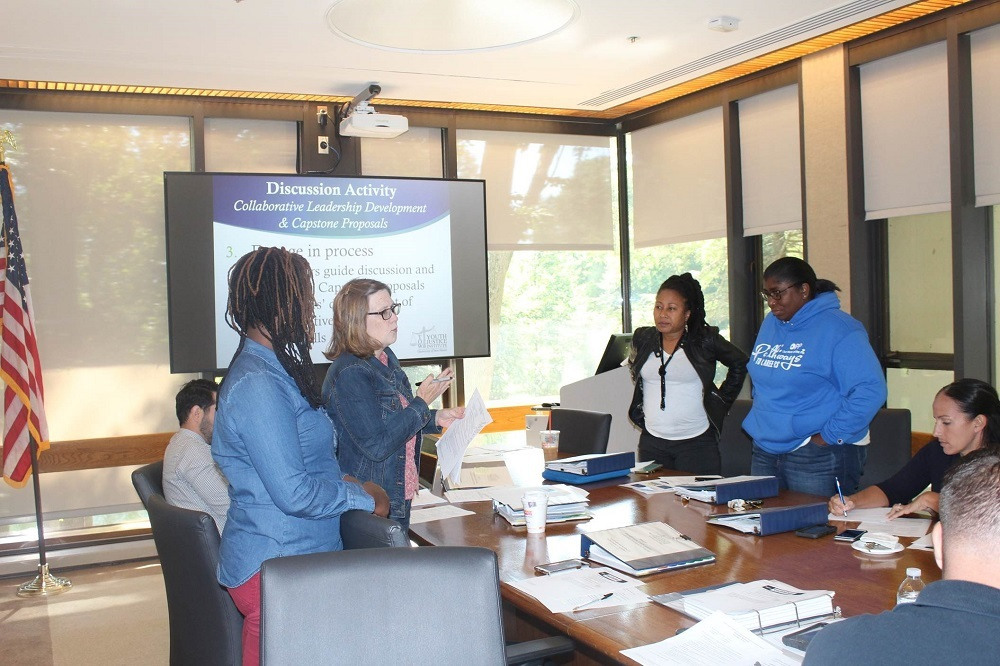Transforming Youth Justice
Professionals working with youth use the latest research and education to reform the way young people and families are treated throughout the juvenile justice system.
Leadership Institute Graduates Change Agents
 |
Professionals who work with youth work on juvenile justice reform at the Tow Institute's Transforming Youth Justice Leadership Development Program. |
A police officer is working to change policies that would divert more young people from the criminal justice system to Juvenile Review Boards. A probation officer is training judicial colleagues on the problem of implicit bias. A high school English teacher is creating a plan to expand transitional vocational programs for at-risk students. The three are among the latest cohort to graduate from the Tow Institute's Transforming Youth Justice Leadership Development Program, an innovative approach to improving youth justice policy, practice and outcomes.
"Kids are not short adults, and they are not inherently bad even if they have had bad things happen to them," says Tow Youth Justice Institute Executive Director William Carbone. "What we are doing is building reform into the system."
Launched in 2014 in partnership with the University of New Haven and with grant support from The Community Foundation for Greater New Haven, the youth justice program at Tow uses research and education to reform the way young people and families are treated throughout the juvenile justice system.
Carbone, a criminal reform expert and former director of the Judicial Branch Court Support Services Division, says Connecticut has been a national leader in reducing its numbers of incarcerated youth. The Tow program, he says, will help ensure that reform continues to move forward by educating those who work in organizations that touch youth justice. Police and probation officers, social service workers, teachers, and others who work with youth attend interactive seminar-style classes that meet once a month over six months. Facilitators share the best practices around youth justice and develop collaborative leadership skills and strategies for pushing reform within and across state and local organizations.
"In five years we will have graduated 100 people. They are committed. They are passionate. They are standing up and saying, 'I am going to be part of the solutions,'" says Carbone who calls the graduates, "change agents."
A juvenile probation officer who recently graduated took the principles from the program to train fellow officers on the role of implicit bias in creating racial and ethnic disparities by showing the documentary, "Color of Justice Revisited." Another graduate, a high school teacher, is working to create vocational programs for special education students who age out of high school without degrees.
Recent graduate Shirley Conyers, and East Haven Police Detective, developed a capstone project to modify existing policies that would allow more youthful offenders to qualify for community review boards, an alternative to being held in a detention center.
Conyers was motivated to attend after she visited a juvenile detention center and was alarmed at the conditions she saw there. Since going through the Tow program, Conyers is transforming the way she treats young people in her day-to-day interactions.
"Recently, I heard a kid say, 'I don't care if you arrest me.' And I responded, 'Yes, you do!' And I talked with the teen about what was going on, where before I would have been more inclined to respond, 'Just turn around and put your hands behind your back."
Did you know?
The Community Foundation has a leadership strategy to support formerly incarcerated men and women and recently awarded $100,000 in grants to organizations involved in reentry and criminal justice reform work.
This story is part of the Inspiration Monday story series produced by The Community Foundation for Greater New Haven.
